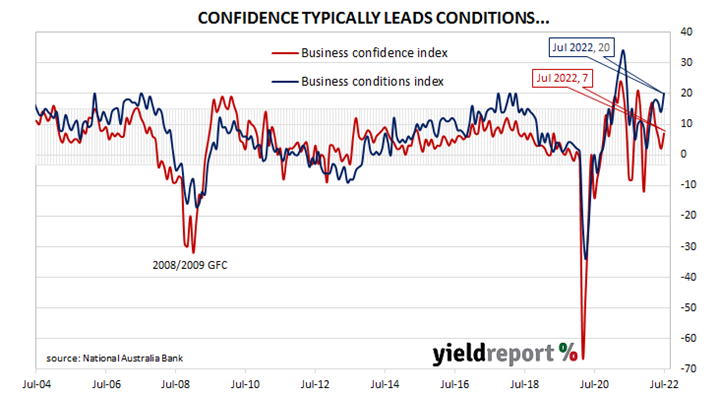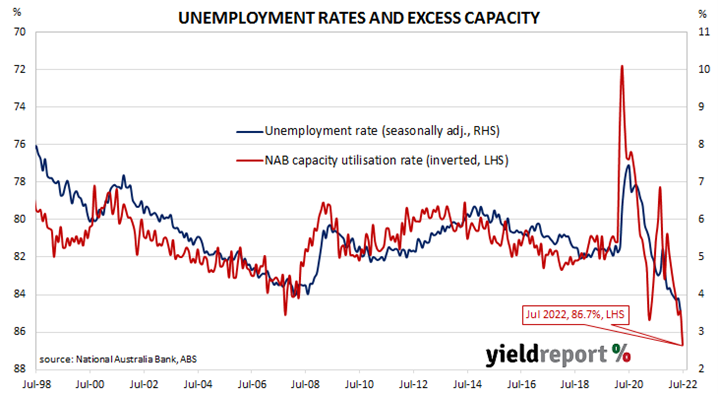Summary: Business conditions improve in July, at elevated level; confidence also improves, just above long-term average; demand “strong”, inflation yet to peak; capacity utilisation rate up, all 8 sectors of economy above respective long-run averages.
NAB’s business survey indicated Australian business conditions were robust in the first half of 2018, with a cyclical-peak reached in April of that year. Readings from NAB’s index then began to slip and forecasts of a slowdown in the domestic economy began to emerge in the first half of 2019 as the index trended lower. It hit a nadir in April 2020 as pandemic restrictions were introduced but then conditions improved markedly over the next twelve months. Readings have been generally in a historically-normal range since then.
According to NAB’s latest monthly business survey of over 400 firms conducted over the last week and a half of July, business conditions have improved, maintaining an elevated reading. NAB’s conditions index registered 20, up from June’s revised reading of 14.
Business confidence also improved. NAB’s confidence index rose from June’s revised reading of 2 to 7, a reading which is just above the long-term average. Typically, NAB’s confidence index leads the conditions index by one month, although some divergences have appeared from time to time.
“Overall, the survey suggests that despite global and domestic economic headwinds, demand has remained strong and inflationary pressure continues to build, suggesting that inflation is yet to peak,” said NAB senior economist Brody Viney.
Long-term Commonwealth Government bond yields moved lower on the day. By the close of business, the 10-year ACGB yield had lost 3bps to 3.21% and the 20-year yield had shed 5bps to 3.52%. The 3-year yield remained unchanged at 3.03%.
In the cash futures market, expectations of higher rates firmed a touch. At the end of the day, contracts implied the cash rate would rise from the current rate of 1.81% to 2.155% in September and then increase to 2.955% by November. May 2023 contracts implied a 3.465% cash rate and August 2023 contracts implied 3.455%.
NAB’s measure of national capacity utilisation resumed its recovery from December’s drop as it increased from June’s revised figure of 84.9% to 86.7%. All eight sectors of the economy were reported to be operating above their respective long-run averages.
Capacity utilisation is generally accepted as an indicator of future investment expenditure and it also has a strong inverse relationship with the unemployment rate.



